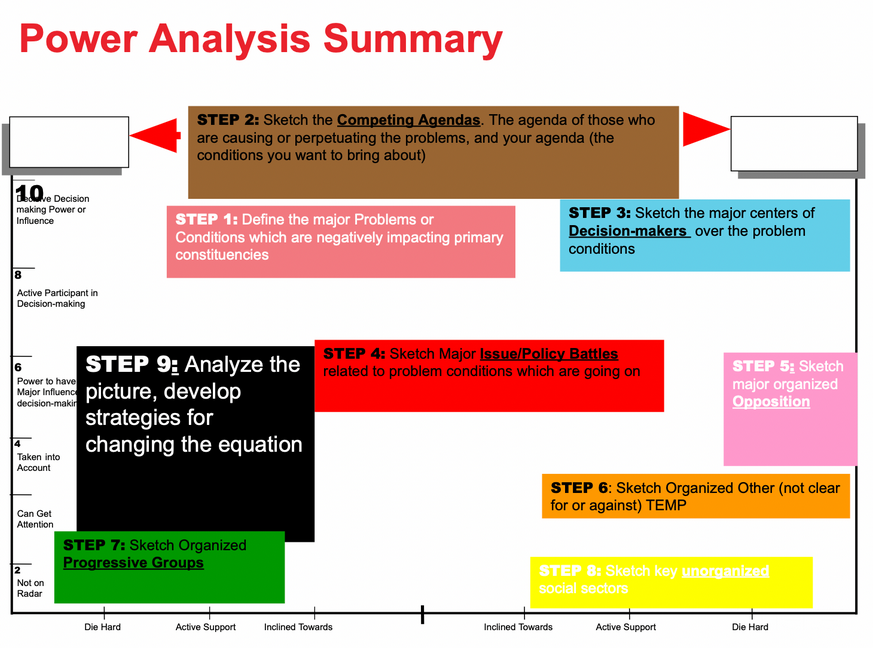A week’s a long time….
This week on Monday, we had our monthly face to face day. This is where between Jeni, Tim and I get together to work through some big ticket items that need a bit of collective ‘in the room’ brain power
One major item for our agenda was to do some thinking and planning around the ‘forthcoming’ Data Reform Bill.
Following the publication of the Government’s consultation response we’d heard on the grape vine that the first draft of the bill might land on July 14th, so we’d agreed to dig into some power and stakeholder mapping and use some great tools nicked from my brilliant colleague Jack Madden at Shelter and adapted by Tim, to focus our strategy, set some objectives and agree an outline approach. Here’s a nice slide to show the sort of thing:

We focused on where we thought we might build or insert community level impacts, voices and accountability into forthcoming legislation, what was realistic and how we might pull the strings - esp looking at earlier Connected by Data briefings on legitimate interest
We were all awed and fascinated by Jeni’s reflection that the over-focus on individual and not group impacts, infact started 40 years ago when the OECD set some of the early global parameters for data governance, kicking the rights of groups in the direction of member states, who then did little with it…
We got excited about the opportunities in a likely Data Reform Bill to try and open this up again in the UK…
We talked about power and accountability and rights…
And then… well… a week’s a long time in politics and influencing strategy development. By Thursday our power-mapping needed a thorough overhaul.
The minister in charge of the bill - Julia Lopez - had resigned, as had most of the Cabinet. The Prime Minister had resigned in response (sort of) and had then suggested no new bills would be brought forward until a new Conservative leader was in place. You got to love politics, it certainly keeps you on your toes!
There were a few other favourite things from our face to face day that I particularly enjoyed too (in a sort of related and unrelated way):
- Jeni quoting Mick Lynch on power strategy and messaging: “If you’re not bargaining, you have to beg and I don’t want people to have to beg”
-
Reading a piece in New Statesman on the train there, on how technocracy is not the answer, including a fabulous quote from Polly McKenzie:
“We have had this amazing conversation today,” she said on one panel. But it was “based on a flawed premise that there is a technical solution to the problems that we face”. The very people “who have votes, and choices and agency and power, and for whom this is all supposed to be in service, we occasionally hear them talked about as if they’re sheep. And that assumption, that what you need is a bunch of clever people to get together in the Tony Blair Institute or the think tank I used to run, Demos, and just figure it out… is profoundly, profoundly harmful to democracy.”
-
Reading Adam Tooze, my very favourite economist/historian, on the train home, exploring the relationship between inequality, inflation policy and collective action. To paraphrase:
“What kind of political economy do we want? One in which there are individual workers, firms, markets and representing the collective good is the prerogative of the central bank? Or are there other regimes that we might find preferable, in which individual, group and collective interests be articulated in more complex, pluralistic arrangements? Would that make the politics of price-setting and price control more complicated, more “political” and more contentious? Yes it probably would. But any technocrat who celebrates the decline of the bargaining power of organized labour because it makes inflation-control easier, should not complain about the rise of troublesome populism!”
And you might even ask the same for Big Data and AI!
